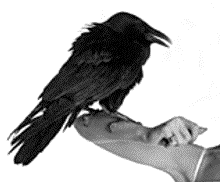DRAW THE LINE!
Cultural boundary making in everyday academic work life
May 30-31, 2008
The conference will be held at the Danish School of Education, University of Aarhus.
The School of Education is situated in Copenhagen
The conference's webpage
UPGEM (Understamding puzzels in the Gendered European Map)
Deadline for Registration April 15th, 2008
Early registration is strongly recommended due to a limited number of participants
Research in academia shows that competent female and male scientists follow different career paths in different national contexts. Some countries are better than others at attracting female scientists to a research career in physical science. Even so, in these countries female scientists never reach top positions to the same extent as their male colleagues. The results presented at the UPGEM conference unveil the complex and intricate cultural historical patterns behind these facts.
The project offers a multifaceted picture of the diversity of the everyday life at universities in five European countries; Italy, Poland, Finland, Estonia and Denmark. To capture this complexity, the project has developed a `Culture Contrast Method' that draws analytical lines across the vast empirical data. This method sheds light on problems of e.g. retaining competent researchers in academia or problems of perceived gender categories hindering female researchers reaching the top. We have found these problems to be related to culture; i.e. diversity in historically and socially created boundaries between practices in nation states, between males and females and between those who stay in academia and those who leave because they are pulled out by more rewards in other workplaces or pushed out for reasons spanning from harassment, sexual harassment, low pay, unfair competition or fired following changes in the political climate.
The conference has three roundtable debates and a number of work shops on selected themes where specific findings will be presented. The actual results of the research will be presented for the first time at the conference itself, but you can learn more about the UPGEM project: UPGEM project
|
Preliminary programme
Friday May 30th
9.30-10.00
Coffee and registration
10.00- 10.20
Welcome:
Dean of the Danish School of Education, Lars Qvortrup, University of Aarhus
10.20-11.00
General presentation of results:
Associate Professor, Dr. Cathrine Hasse, Danish School of Education, University of Aarhus
11.00-12.15
Roundtable discussion with physicists, politicians and researchers on `Women and universities as workplaces'*:
Vice Rector for Academic Affairs University of Aarhus, Professor Nina Smith
Vice-chair of the European Parliament's Committee on Industry, Research and Energy and member of the Committee on Women's Rights and Gender Equality, Britta Thomsen
Head of Department Learning Lab, DPU, Aarhus University, Professor Hans Siggaard Jensen
Professor Anne Kovalainen, The Turku school of Economics and Business Administration, Turku, Finland
12.15-13.00
Lunch
13.00 - 16.00
Workshops**
Saturday May 31st
10.00-11.00
Roundtable discussion with physicists on `Women in Physics'*
Physicist, Dr. Dragana Popovic, Belgrade Women's Studies Center, Belgrade
Physicist, Dr., Pia Thorngren Engblom, PhD, Docent in Nuclear Physics Department of Physics, Stockholm University
Associate professor, Anja C. Andersen, Dark Cosmology Center, University of Copenhagen and Chair of Network for Women in Physics in Denmark
11.00-12.30
Workshops**
12.30-13.15
Lunch
13.15-14.30
Summary of workshops
14.30-15.30
Roundtable discussion with physicists and researchers on recommendations:
A group of specialists discuss UPGEM-results and reported recommendations from the workshops. Policy Recommendations will also be discussed in all of the workshops.
*The invited speakers in the panel will first give a 10 minute comment each on findings in the UPGEM-project and then discuss recommendations.
** In the workshops UPGEM partners and assistants give papers based on UPGEM results. Participants are not expected to give papers but to discuss results and recommendations.
Workshop themes:
Academic Structure and Changes
Science Policy
Career Path
Workplace Environment
Family and Work
Identity and Stereotypes
(The programme might be subject to changes and a regularly updated version is available on: The conference's page)
Responsible for workshops are UPGEM senior partners, consultants and assistants:
Senior partners:
Dr. Endla Lõhkivi, University of Tartu, Estonia
Dr. Kristina Rolin, Helsinki School of Economics, Finland
Professor Anna Maria Ajello, University La Sapienza, Italy
Dr. Merja Helle, University of Helsinki, Finland
Dr. Cathrine Hasse, Danish School of Education, University of Aarhus, Denmark
Consultants:
Agata Heymowski, Polish representative and consultant, Poland
Lone Svinth, Consultant of Quantitative studies, Denmark
Assistants:
Katrin Velbaum, University of Tartu, Estonia
Jenny Vainio, Helsinki University, Finland
Giulia Califiore, University La Sapienza, Italy
Cristina Belardi, University La Sapienza, Italy
Stine Trentemøller, Danish School of Education, University of Aarhus, Denmark
Anne Bjerregaard, Danish School of Education, University of Aarhus, Denmark
|
